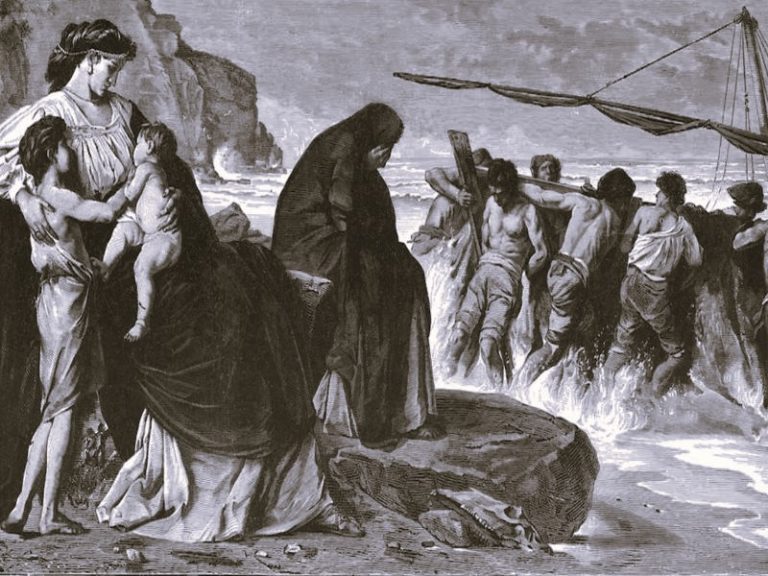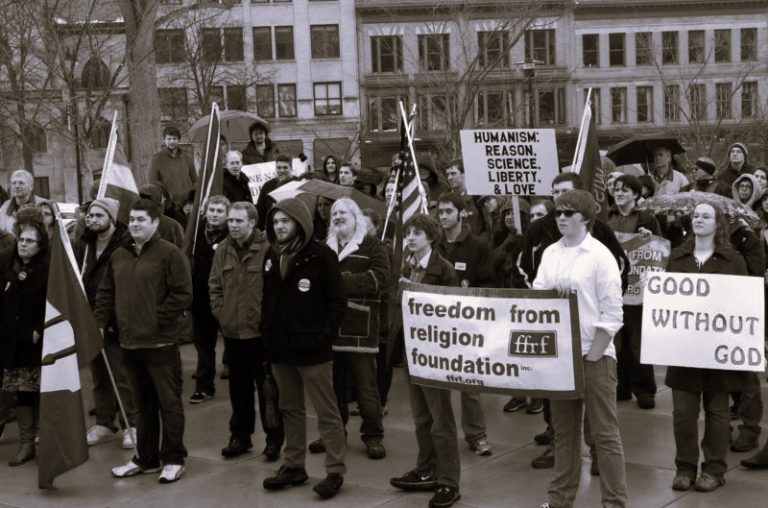

Religious organizations should not receive special tax benefits and privileges unavailable to other nonprofit organizations.

By Ian S. Thompson
Senior Legislative Advocate
ACLU
During the 2016 campaign, then-candidate Donald Trump publicly lamented the fact that religious groups could not endorse his candidacy without jeopardizing their tax-exempt status.
“I know people who want to endorse me, but they’re afraid to endorse anybody because they don’t want to get political,” he told the Christian Broadcasting Network. “So essentially, they’ve taken a lot of the power away from the church.” Earlier this year, at the National Prayer Breakfast, President Trump vowed to “get rid of and totally destroy the Johnson Amendment.”
The Johnson Amendment, which has been part of the U.S. tax code since 1954, prohibits all tax-exempt non-profit organizations — including churches and other houses of worship as well as all secular nonprofits — from engaging in partisan political activities, specifically endorsing or opposing political candidates.
Six months into the Trump presidency, the Johnson Amendment remains on the books. However, last week the House Appropriations Committee, which is tasked with making sure the government is funded, included a provision in a government funding bill that is designed to make it very difficult for the IRS to investigate claims that churches — but only churches — have violated the law by engaging in prohibited partisan political activity. This provision would significantly undermine the separation of church and state.
The provision would first require IRS investigators to obtain consent from the IRS commissioner for each investigation they initiate and then require the IRS to notify the relevant committees in both the House and Senate before they can begin their inquiry. These requirements would significantly slow down, if not halt, such investigations as well as dangerously politicize them.
Members on the House Appropriations Committee came up just a few votes short of being able to strip the provision from the bill. But thankfully, this is far from a done deal. The appropriations bill that includes this provision still has to go to the House floor for a vote and then on to the Senate.
While current law under the Johnson Amendment applies to all tax-exempt nonprofit organizations, this new provision would apply only to churches. This effectively gives them special tax benefits and privileges that are not available to nonprofits that aren’t religious organizations, including the ACLU, Amnesty International, the conservative Federalist Society, and many others. The Establishment Clause of the First Amendment to the Constitution was designed to prevent exactly this kind of religious favoritism.
While not exactly fulfilling President Trump’s vow to “get rid of and totally destroy the Johnson Amendment,” this provision would make it almost impossible to enforce the prohibition on partisan political activity for churches and other houses of worship. Simply said, the Constitution does not allow this.
It is important to note that churches and religious leaders are already able to exercise free speech — free from fear of reprisal by the IRS — by speaking out on political and social issues. Church leaders are also completely free to support or endorse political candidates as private citizens. And as an organization deeply committed since our founding nearly 100 years ago to protecting the free speech rights of all people, the ACLU would vigorously oppose any effort to chill the ability of houses of worship and religious leaders to speak out on what they see as the important issues of the day. Those kinds of restrictions would clearly be in violation of the Constitution.
This does not mean, however, that religious organizations are entitled to receive special tax benefits and privileges that are unavailable to all other nonprofit organizations. Unconstitutional religious favoritism has absolutely no place in government. Urge your member of Congress to oppose Section 116 in the Financial Services and General Government Appropriations bill.
Originally published by the American Civil Liberties Union, 07.21.2017, reprinted with permission for non-commercial purposes.






